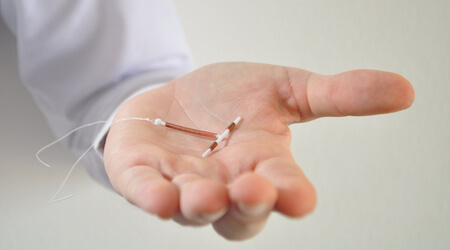
If you are one of the millions of women in the United States who has chosen the Mirena IUD as your method of birth control, you should be aware of some of the adverse side effects and complications that have been reported by users of Mirena.
If you have suffered injuries related to the use of a Mirena IUD, you could be entitled to compensation for the physical injuries and emotional suffering you have endured.
Contact our South Carolina Mirena IUD lawyers at Joye Law Firm to find out what legal options you may have. Call Joye Law Firm at (888) 324-3100 or use our online contact form. There is no fee for the consultation and claim review.
About the Mirena IUD Device
The Mirena IUD was approved by the Food and Drug Administration for use as a birth control method in 2000. Mirena was also approved in 2009 as a treatment for women with exceptionally heavy bleeding or pain during menstruation.
It is a small, T-shaped plastic device that is inserted into the uterus during a pelvic examination. Unlike older IUD models, the Mirena IUD is smaller, softer and more flexible. The device is intended to remain in position inside the uterus until a medical professional removes it at the woman’s request.
It prevents pregnancy by releasing levonorgestrel, a type of progesterone, directly into the uterus at timed intervals over the life of the device. The progesterone then acts as a thickening agent for the cervical mucus found within the uterus. Thicker mucus, in turn, prevents sperm from getting through to the eggs during ovulation, thereby preventing pregnancy.
Although the Mirena IUD does have a very high effectiveness rate, it has also been associated with a number of serious potential side-effects and complications.
Mirena Adverse Events
The FDA has received over 45,000 reports from women of “adverse events” related to Mirena. While “adverse event” is a rather broad term that includes a wide variety of complaints, there are some serious, even life-threatening, problems with Mirena that have been reported with some frequency, including:
- Perforation of the uterine wall or of other internal organs
- Severe hemorrhaging
- Migration, dislocation, or expulsion of the device
- Pelvic inflammatory disease (PIP) or sepsis
- Ectopic pregnancy
- Abdominal pain
- Migration of the device from the implant site, requiring removal surgery
- Ovarian cysts
- Embedment in the uterus
- Infertility.
Holding the Manufacturer Responsible for Mirena IUD Injuries
The FDA has warned that some of the manufacturer’s claims it were false, misleading and potentially harmful.
In warning letters the FDA sent to Bayer in 2009, it asserted that the drug company had:
- Overstated Mirena’s effectiveness
- Downplayed the seriousness of health risks related to the IUD
- Failed to properly communicate information about risks to women and doctors.
If you have suffered physically, emotionally and/or financially as a result of using a Mirena IUD, you could have a valid claim against the manufacturer under the laws of product liability. In the United States, when a defective product causes injuries, the manufacturer of the product can be held liable for those injuries.
Talk to Our South Carolina Mirena IUD Injury Lawyers Today
If you are a Mirena IUD user, and you believe that you have suffered injuries, negative side-effects or complications, you may have a right to compensation for the medical expenses and the emotional trauma you have endured.
You can count on our South Carolina Mirena IUD attorneys at Joye Law Firm to give you a fair and honest evaluation of your claim. Call the defective medical device lawyers at Joye Law Firm at (888) 324-3100 or use our online contact form for a no-cost claim evaluation and consultation.



























